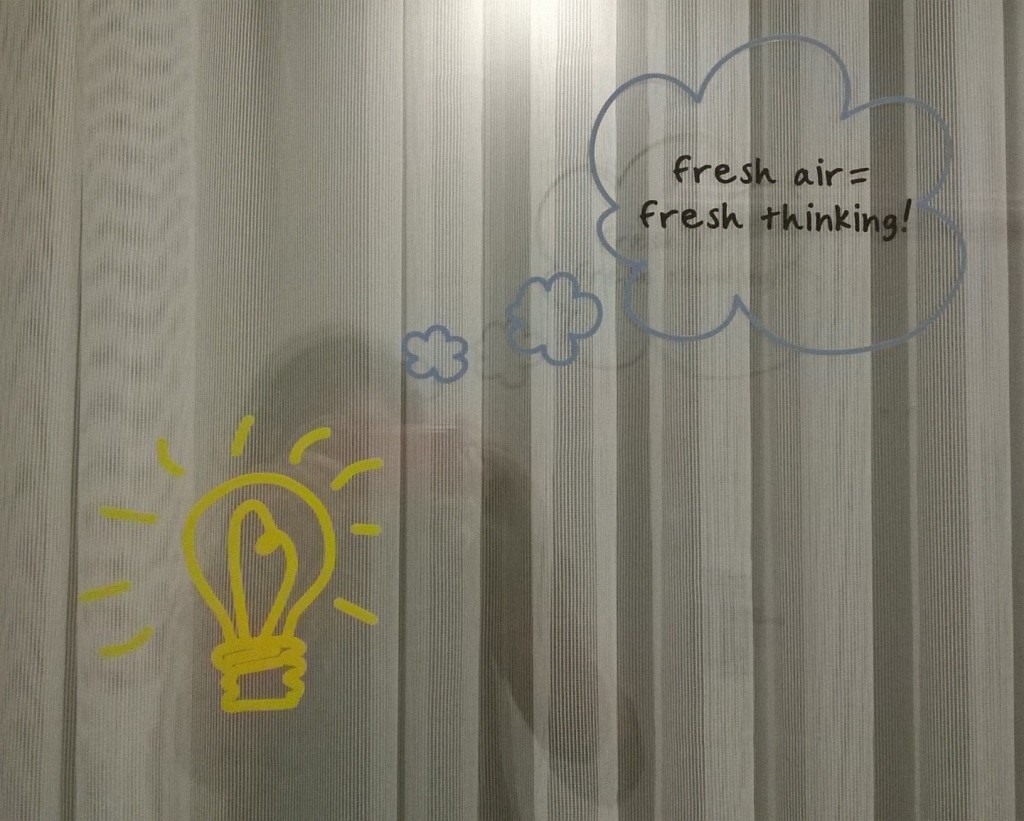 Last week Simon Kemp and I attended the 11th Annual Conference on Environmental, Cultural, Economic and Social Sustainability, where we presented on the award-winning Blackout initiative and delivered a workshop on the sustainable development goals summit used during the interdisciplinary module, Sustainability in the Local & Global Environment. With three full days of discussions, workshops and talks, there weren’t many moments to take the above advice from the conference venue and go outside. There were, however, ample opportunities to learn from educators, students and sustainability professionals from 55 different nations. Faced with such variety, I’ve just reflected on a few highlights here.
Last week Simon Kemp and I attended the 11th Annual Conference on Environmental, Cultural, Economic and Social Sustainability, where we presented on the award-winning Blackout initiative and delivered a workshop on the sustainable development goals summit used during the interdisciplinary module, Sustainability in the Local & Global Environment. With three full days of discussions, workshops and talks, there weren’t many moments to take the above advice from the conference venue and go outside. There were, however, ample opportunities to learn from educators, students and sustainability professionals from 55 different nations. Faced with such variety, I’ve just reflected on a few highlights here.
I was reminded again of what volunteers working together can achieve by Selina Juul’s plenary session. In 2008, she founded Denmark’s ‘Stop Wasting Food’ movement, which began as a Facebook campaign and is now a nation-wide movement raising public awareness about food waste and working with organisations to change practice. Still entirely run by volunteers, the movement works with supermarkets, restaurants, international organisations such as Unilever, and festivals to reduce the production of food waste, and to put surplus to positive use, for example cooking meals for people living on the streets. Their Leftovers Cookbook empowers consumers to avoid wasting food in their kitchens. This was an inspiring example of what passionate and informed people can achieve together. (This is a good moment to remind you of the Sustainability Action Awards, which will open in February and recognise students and staff making a difference at university or in the community).
A theme that emerged was the role of significant life experiences in helping people on their sustainability journey. As educators we cannot create life experiences – these are unique to each individual – but we can create opportunities that might for life experiences for students and staff. Christopher Olsen, from the University of Montana, shared his research into significant life experiences that inspire women to become sustainability and environmental justice activists. This highlighted the importance sharing these experiences with people, in particular mentors – a challenge to educators from any sector. Brennan Lagasse, from Sierra Nevada College in Tahoma, shared case studies on how his students engage with specific and current sustainability challenges. It is often these tangible experiences, outside of the lecture theatre, that shape our values and views in the long term.
Throughout the whole conference there was a sense that sustainability can and maybe even should be fun. At Sustainability Action, we have always tried to create memorable and enjoyable opportunities for students and staff to get involved with sustainability on campus and in the local community. There are many things coming up in 2015 (read more) and we’ll be reflecting on what we learnt from the conference to continue to innovate throughout the year ahead. Watch this space.